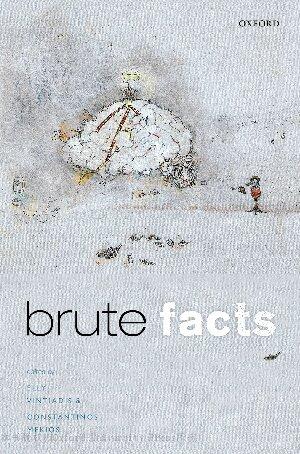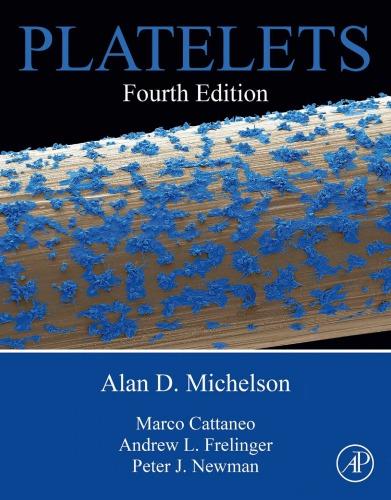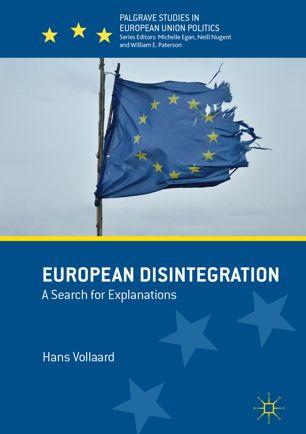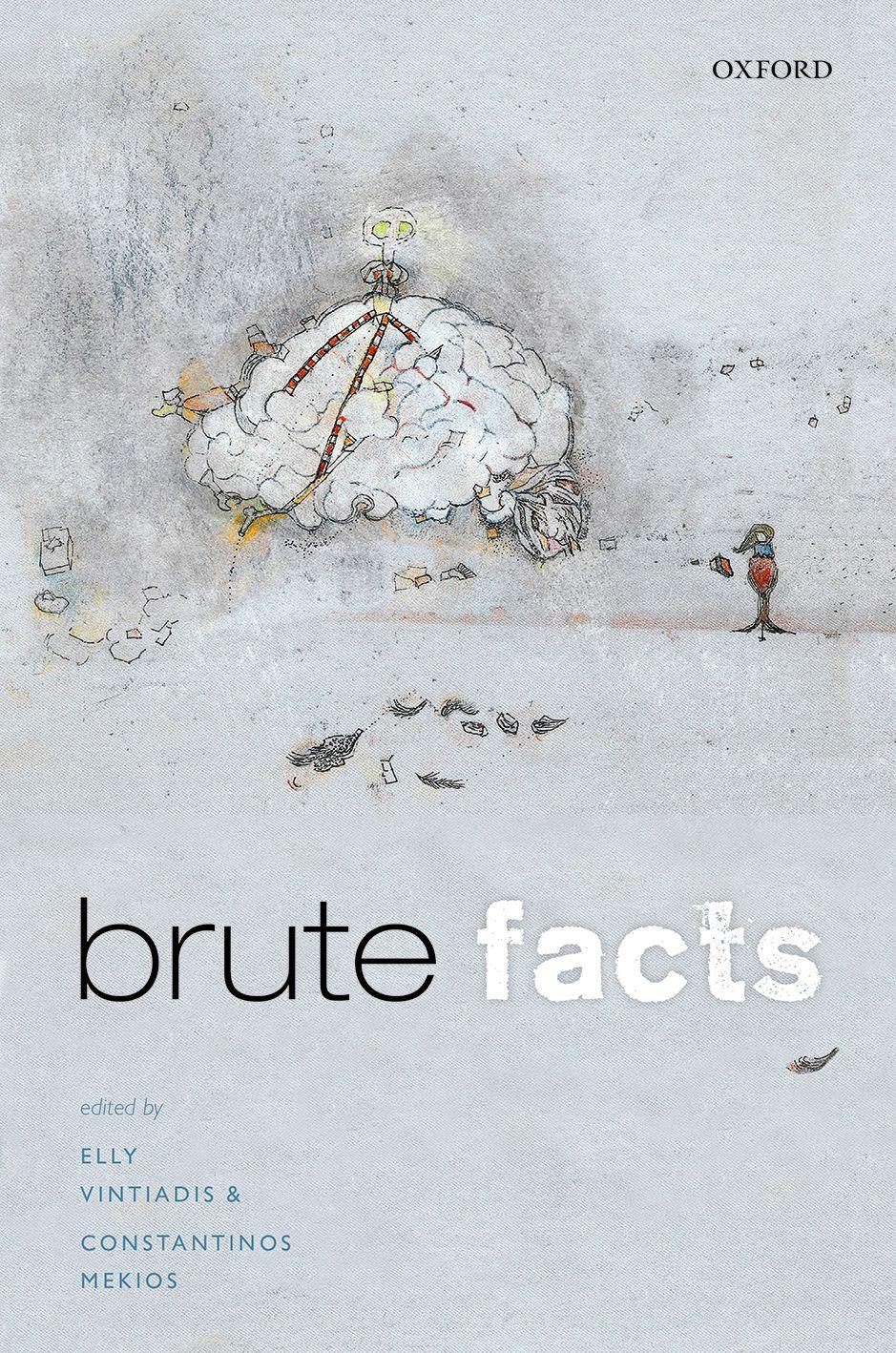1 Introduction
Elly Vintiadis
This is a book about facts that don’t have explanations—or what philosophers call brute facts. Although a lot has been written about explanation, little attention has been given to what it means for something to lack an explanation. The papers in this collection are meant to address this deficiency by posing this question with respect to things that, in the title of this collection, are rather liberally called “facts,” e.g., laws, properties, states, phenomena, etc.
This exploration into brute facts was partly inspired by the recent resurgence of interest in the concept of emergence in philosophy and science.1 Despite this renewed interest in the concept of emergence in these fields, little work has been done to address the central issue of facts that do not have explanations or, at least, reductive explanations. The papers in this volume begin to cover this gap.
The question of bruteness is also a philosophically interesting issue in its own right. Brute facts appear in our explanations, are part of many people’s intuitions about explanation and the structure of the world, and inform philosophical views in metaphysics and in the philosophy of science. However, there are many perplexing questions about brute facts. For example: how can we draw a distinction between facts that can reasonably be thought of as brute and facts for which further explanation is possible? Can we explain something by appealing to brute facts? Can we gain understanding if our explanations end with brute facts? What counts as evidence for the existence of brute facts? Is naturalism inconsistent with the existence of (non-physical) brute facts? Can modal facts be brute facts? Are emergent facts brute facts?
It is these kinds of questions that are addressed in the essays in this anthology. The aim of this collection is to promote awareness of, and interest in, the largely ignored topic of brute facts, with the hope that it will initiate a systematic and rigorous treatment of the topic. With this aim in mind, we have tried to bring together original papers that either support or criticize the plausibility of the existence of brute facts, as well as papers that attempt to elucidate the very notion of brute facts and its relation to other concepts central to contemporary debates in philosophy.
1 Roughly, emergence refers to the appearance of novel and irreducible properties in a system when it reaches a certain level of complexity.
1. Brute Facts
Beyond the initial definition of brute facts as facts that that do not have explanations, a useful distinction has been drawn by Eric Barnes (1994) between epistemically brute facts and ontologically brute facts. Epistemically brute facts are facts for which we do not have an explanation, either because one is not yet available, or because our epistemic limitations prevent us from ever having one. In other words, epistemically brute facts are brute for us, or for us at a certain point in time; they are not brute per se. For example, the fact that gases behave in a manner described by the Boyle-Charles law was an epistemologically brute fact until its explanation in terms of the kinetic theory of gases. Such epistemically brute facts, though interesting in themselves, are not of immediate philosophical interest. Ontologically brute facts on the other hand are of immediate philosophical interest: if such facts exist, there is no explanation for them in virtue of the way the world is, independently of us and our possible epistemological or cognitive limitations. Such facts are ontologically unexplainable. The fundamental laws of physics, or the value of physical constants, could serve as examples of facts that are possibly ontologically brute.
The particular facts that we consider to be ontologically brute will depend on what kind of theory of explanation we accept. For instance, the properties of fundamental particles will be brute facts within a mereological view of explanation, while a fundamental law or theory will be a brute fact under covering law theories of explanation, and so on. Still, part of the concept of ontologically brute facts, and the source of many of the difficulties associated with this concept, is that their bruteness remains a feature of the world and not a function of our epistemic status at any given time. To the extent possible, the following discussion will focus on observations about brute facts in general and will not depend on any particular theory of explanation.
For many, including John Heil in this volume, brute facts, if there are any, must be contingent, since it only makes sense to ask for an explanation of some fact if there is some other possible way that fact could have been. According to this view, brute facts cannot be necessities because necessities cannot be other than they are and, therefore, either do not require an explanation, or are self-explanatory. In this sense, brute necessities are often considered highly problematic and are consequently dismissed— for instance, by Levine in this volume, who understands explanation to consist in removing alternative possibilities and, therefore, takes bruteness to apply only to contingent facts.
Despite the view held by many philosophers that brute necessities are objectionable, some think that it is a natural question to ask why necessities are the way they are and, also, that the mere fact that we cannot ask why a necessary truth is what it is rather than something else is not sufficient to exclude the possibility that such truths are brute. For instance, necessities could be understood as brute facts about any possible world. In his paper in this volume, James Van Cleve starts with the observation that in mathematics—the area of the par excellence necessary truths—there are proofs that

prove and proofs that explain. Van Cleve then proceeds to explore such questions as whether there can be brute necessities, whether necessary truths require explanation, and, if they do, what such an explanation would amount to. He considers different possibilities—e.g., that necessities are brute, that they are autonomous, that they are explained by higher order necessities, that they hold in virtue of the nature of their constituents—and concludes that, at this point, the existence of brute necessities cannot be excluded.
2. Brute Facts and Explanation
Brute facts figure in our ordinary explanatory practices, which do not require everything to have an explanation. Pragmatically, explanation is contextual and interest-relative. Thus, every explanation contains unexplained elements. Moreover, the fact that our explanations may ultimately rest on appeals to brute facts, such as brute initial conditions, is not ordinarily understood to mean that we cannot have a satisfactory and even complete explanation of a phenomenon. In fact, this is exactly how scientific and everyday explanations work: it is generally expected that by retracing a causal chain backwards, for instance, we will eventually arrive at fundamental laws or first principles rather than continue on indefinitely.
Brute facts sometimes play the role of unexplainable explainers: they figure in explanations but do not themselves have explanations. Although appealing to such unexplainable explainers is a feature of our ordinary explanatory practices, and although we may be satisfied with this practice on pragmatic grounds, one may object to the use of brute facts in explanation on ontological grounds. That is, despite the fact that we identify brute facts by reference to explanation, if explanations are meant to mirror, in one way or another, the structure of the world, one may object that positing brute facts does not accurately capture the way the world is.
One reason for this objection to the appeal to brute facts in explanation might derive from the belief that every fact has—or must have—an explanation. This is the belief reflected in Leibniz’s “Principle of Sufficient Reason” (PSR), according to which “nothing happens without a reason why it should be so, rather than otherwise” (1956: 16) and from which it follows that every fact must have an explanation, even if only in principle.2 Thus understood, the PSR applies to contingent truths that could have been otherwise.
If, as the PSR asserts, everything must have an explanation, then it may seem to follow that either the PSR must lead to an infinite regress of explanations or brute facts must be introduced to stop such regress. However, in traditional metaphysics, at the end of a causal chain there must be a necessary truth, and there is a sufficient reason for any necessary truth, namely that its negation is a contradiction (Leibniz 1714: 33).
2 The PSR has been around in different versions long before Leibniz but for present purposes his formulation will suffice.
Thus by invoking the PSR one can avoid both an infinite regress and the positing of brute facts. So the existence of ontological brute facts is excluded if the PSR is true. But the question then is whether the PSR is indeed true. Must everything have an explanation?
Leibniz regarded the PSR as a first principle of sorts, and it held sway in philosophical thinking for quite a while, with some philosophers even arguing that it is self-evidently true (Pruss 2006: 189). However, given the sheer volume of the philosophical literature debating the validity of the PSR, this is not obviously the case.
In fact, the plausibility of the PSR has been disputed extensively, and it is natural that proponents of brute facts will question it. For example, in his contribution to this volume, Gerald Vision finds a contemporary corollary to the PSR in the necessitarian requirement that the explanans necessitates its explanandum. Vision poses the question of whether the PSR is itself an empirical claim. If it is, he asks, why doesn’t the existence of fundamental physical laws (which don’t seem to be necessarily true) show it to be false? Similarly, one can ask why indeterministic models of quantum mechanics don’t show it to be false. On the other hand, if it is not an empirical claim, it must be an a priori claim. But the a priori validity of the PSR is called into question by many philosophers, including David Hume, who consider it plausible on a priori grounds that not everything that exists must have an explanation.
Compounding these impasses, the PSR has fallen out of fashion recently among philosophers who believe that it entails necessitarianism (i.e., the view that all truths are necessary truths and that no state of affairs other than the one that actually obtains could possibly have been the case), a consequence that few philosophers are willing to accept. Thus, although the PSR may provide a basis for denying or resisting the possibility of brute facts, the validity of the PSR is open to significant doubt and cannot be taken to provide a decisive refutation of their existence.
Apart from the possibility of necessary truths that, in a sense, can be said to explain themselves, another possibility has been entertained by Robert Nozick. Questioning the assumption that explanation is irreflexive, Nozick argued for the possibility that a fundamental law or principle may explain itself by self-subsumption, by being an instance of itself. In such a case, the further question arises whether for a fact to be brute it must not be explained by anything, or whether it must not be explained by anything other than itself (1981: 118–21).
Not only is there no agreement on how the chain of explanations comes to an end, but there is also no agreement on whether it actually comes to an end at all, as reflected in explanatory and metaphysical infinitism. According to explanatory infinitism, the chain of explanations goes on ad infinitum, reflecting a world in which there is no ultimate explanation and no foundational level of reality. If the chain of explanations goes on infinitely, it would seem to follow that nothing is left unexplained, i.e., there are no brute facts. But resistance to the existence of brute facts is not only grounded in theories of explanation, it can also come from metaphysics. For, although we have defined brute facts in terms of explanation, bruteness has also been understood as the absence of ontological dependence, as, for instance, in Torin Alter’s contribution to

this anthology, in which he defines bruteness in terms of lack of grounding and in Dana Goswick’s paper in which brute facts are fundamental, irreducible, facts. Although ontological dependence is a type of metaphysical dependence, it is sometimes understood to offer a metaphysical explanation of dependent entities (broadly conceived). Metaphysical explanations are different from causal explanations in that, instead of explaining by appealing to causes, they proceed from what is less to what is more fundamental, or from what depends for its existence on something else to that on which it ontologically depends. Understood in this way, a brute fact is a fact that does not obtain in virtue of anything else.
Metaphysical infinitism is the view that there is no ultimate metaphysical ground for what exists, but, instead, that there is an infinite chain of ontological dependence. Since infinitism is opposed to foundationalism, which posits the existence of a class of foundational entities on which everything else depends or from which everything else is derived, it could be argued that infinitism cannot accommodate brute facts. For if bruteness is understood in terms of ontological independence and nothing is ontologically independent, nothing is brute either.
In discussions of ontological dependence a brute fact is usually understood to be a fundamental fact, where fundamentality is associated with the ultimate constituents of matter. On this view, if complex entities stand in mereological relations to other entities, that is, if entities are composed of other entities as their parts, then we can say that the ultimate simple entities that make up the other, more complex entities are fundamental. These fundamental entities are ontologically independent and, therefore, brute. However, the identification of fundamentality with bruteness is challenged by Elanor Taylor in her contribution to this volume, who points out that, although a fundamental fact may be brute, it does not have to be so if bruteness is understood in terms of lacking an explanation—for a fundamental fact can be explained by something equally, or less, fundamental. Moreover, if we allow for degrees of fundamentality, as some current views do, fundamental facts need not be either brute facts or independent facts.3
The regresses inherent in explanatory and metaphysical infinitism led to their being viewed with suspicion. This attitude to a large extent persists because of the counter-intuitive implications of infinitism generally and its unsatisfying metaphysical conclusions in particular. For instance, in a “gunky” world (Schaffer 2003) in which everything is infinitely divisible into parts and in which the dependence goes from small to big, there is no foundational level of reality. In such a world, it is not clear how anything can get off the ground to begin with, and there are no ultimate principles for science to uncover. Although our desire for ultimate explanations might not be a decisive reason to reject a view about the structure of the world that excludes the existence of ultimate explanations, it has been considered a reason to resist such views and
3 For views that question the requirement that the fundamental should be understood as being ontologically independent see Barnes 2012; Jenkins 2013; Wilson 2014; Raven 2016.
to retain some version of ontological dependence and some form of fundamentality in metaphysics.4 Nevertheless, infinitism cannot simply be ruled out as a possibility and, as such, it presents a difficulty for proponents of the existence of brute facts.
In addition to the existence of a chain of explanations that goes on infinitely, or the existence of facts that explain themselves, another reason to question the existence of brute facts is the possibility of a circular chain of explanations in which the chain of explanations comes to an end by appeal to the original explanandum itself. Because it is difficult to see how this could plausibly be the case, or even what it means exactly, this possibility traditionally has not been favored (Lange 2002: 98).
Another challenge to the existence of brute facts comes from philosophers who reject traditional substance metaphysics and the fundamental entities or substances it posits. These philosophers favor a process metaphysics in which the ultimate constituents of reality, if we want to characterize them thus, are processes that exist within different temporal and physical patterns. On such a view, only intertwined processes and patterns of organization exist, and the traditional notions of mereological dependence and boundaries do not apply. For this reason, there is no base level at which something could count as brute or fundamental. At most, bruteness could be attributed to the very existence of a process.
Although it has empirical and logical arguments in its favor and although it is particularly relevant to emergence, process metaphysics requires a revision of some of our most deeply held theories and views about the world. As a result, work in this area is done largely in the margins of mainstream metaphysics. Nevertheless, the proposed evidence in its favor demands attention and constitutes a serious challenge to the existence of brute facts or, at least, to the kinds of facts that might be considered brute. In this volume Mark Bickhard presents such evidence and proposes a model of emergence that does not require the brute laws posited by the British emergentists, and, in another contribution, Argyris Arnellos and Charbel El-Hani argue from a process perspective against the existence of brute facts in biological organizations.
One more area of metaphysics in which the question of fundamentality arises is that of modality. In this collection, in addition to James Van Cleve mentioned above, three contributors, Dana Goswick, John Heil, and Joseph Levine, address the question whether modal facts (facts about what could, could not, or must be the case) are brute. All three agree that such facts are not brute, but for different reasons. Dana Goswick opposes modal primitivism (i.e., the view that modality is an irreducible feature of the world) because it conflicts with naturalism, and she argues against brute irreducible modal facts by providing a reductive account of the existence of objects that have modal properties. Levine sees modality as grounded in logic and, thus, as not basic or fundamental. Because bruteness, for Levine, can only be attributed to basicness or fundamentality, he concludes that modal facts cannot be brute. Lastly, Heil argues that
4 Indeed, Cameron (2008) appeals to theoretical utility as grounds for rejecting such a view, arguing that, for methodological reasons, we need to postulate a fundamental level of reality.
what is logically possible is not a guide for what is really possible but, rather, that it is the nature of reality that determines what is and what is not possible. Thus, what may seem to us to be brute facts, in reality are not brute.
3. Brute Facts and Understanding
A separate set of issues of interest is revealed when the focus of investigation turns on the relationship between explanation and understanding. We generally seek explanations of phenomena because we believe that doing so will help us to understand the phenomena. The notion of understanding is not very clear and it has been used by different philosophers in different ways depending on their views on explanation. This is because different views of explanation identify different features of explanation in virtue of which understanding is provided. For instance, according to the DN model of explanation, understanding involves subsuming a phenomenon under a law, whereas, according to the causal theory of explanation, understanding involves acquiring information about what Lewis has called the “causal history” that made something occur (1986: 217).
Although the relationship between explanation and understanding has been characterized in different ways, the belief that they are tightly linked is deeply entrenched among philosophers. This can be thought to pose a problem for proponents of brute facts because it seems to commit them to the view that understanding is ultimately grounded in facts that, because they lack explanations, cannot, themselves, be understood. As a result, the explanatory power of brute facts seems to be enveloped in a shroud of mystery.
Michael Friedman (1974), who reintroduced the connection between explanation and understanding to philosophy with his unification account of explanation, argued that our understanding is maximized when the number of “independent phenomena” that we need to accept is minimized. In developing the notion of explanation as unification, Philip Kitcher similarly required a reduction in “the number of facts we have to accept as ultimate” (1989: 423). Clearly, the unification account of explanation is not, by itself, an argument against the existence of brute facts. However, it does support keeping their number to a minimum, and can thus be presented as a reason for restricting brute facts to specific levels of explanation. That is, it can form part of an argument for adjudicating what kinds of brute facts we are permitted to use in explanations.5 In opposition to this long-standing tradition of viewing explanation and understanding as inextricably linked, Ludwig Fahrbach (2005) has argued that the existence of brute facts can serve to sever the connection between explanation and understanding. According to Fahrbach, although brute facts do not have explanations, they can be fully understood. Coming to know that something is a brute fact confers on us an epistemic gain because
5 Marc Lange (2002: 100–7) offers examples in the history of science in which theories were deemed more plausible than others based on which brute facts they posited.
it coveys information about the order of nature (i.e., the complete structure of all dependency relations between an explanandum fact and other facts). Upon learning that something is an ontologically brute fact, we know all that there is to know about it as far as its explanation is concerned. Thus, although we do not have explanations for brute facts, our understanding of them can be complete, and this can add to our overall understanding of the world.
4. Can We Know that a Fact is Brute?
One remaining question is how to establish that some fact is ontologically brute. The history of science has shown us that many of the facts that were considered ontologically brute in the past were really only epistemically brute. Thus, how can we ever know that some particular fact is ontologically brute?
Science is not merely about finding and combining data; arguably, it is also about doing so in a way that is most elegant and unified. This means that, if possible, we should seek to limit the number and kind(s) of brute facts that we need to posit. In this sense, the epistemically commendable attitude would seem to be to start with the assumption that facts are not brute and try to explain them. In his paper, Mark Bickhard identifies as one aspect of naturalism that it is always appropriate to ask further questions and to search for a deeper explanation of phenomena. Given this understanding of naturalism, accepting something as a brute fact seems to violate the very spirit of naturalism and scientific investigation. Similarly, Carl G. Hempel and Paul Oppenheim have criticized the acceptance of brute facts by emergentists as encouraging “an attitude of resignation which is stifling for research” (1948: 152).
In contrast, the British emergentists took a very different view of the relationship between naturalism and brute facts. For them, it was precisely the naturalist attitude of faithfully following empirical evidence wherever it leads, and never beyond, that led to the acceptance of brute facts and to non-physical brute facts. (See Alexander 1920, 1921; Morgan 1923; Broad 1925.) This is the attitude described by Samuel Alexander (1920, 1921) as “natural piety”: “to note the facts,” while refraining from letting anything but nature lead you to conclusions (1921: 410). If we embrace this attitude, there will be occasions when empirical evidence leads us, or forces us, to the conclusion that there are brute facts, despite our metaphysical or theoretical misgivings about them.6 But, as C. Lloyd Morgan points out (1923: 39), to establish this point does not mark the end of all inquiry— indeed, in general, the British emergentists did not exclude the possibility of reducibility of what seemed at the time to be emergent phenomena.7 Although something may
6 Indeed, Alexander himself writes, “ I confess to feeling, as a metaphysician, a horror of notions which the mind takes for ultimate and indefinable” (1920: xxiv).
7 Though Broad believed that the behavior of all chemical compounds was emergent, he did not exclude the possibility that it may one day be reduced and turn out not to be emergent after all. However, he did not consider the same possible concerning the phenomenal properties that “pure”—secondary—qualities of objects cause in us (1925: 72ff., 80–1).

seem to be a brute fact, we must always bear in mind the possibility that it might not actually be a brute fact and keep an eye open for possible explanations that we might have missed. After all, it is not what we know, but what we do not know that drives science and philosophy, and there is much to learn about the process of identifying brute facts (and making sure that we are right about them). In this volume, Peter Wyss takes up this and related questions and argues that inexplicability does not entail lack of understanding, or unintelligibility and that, although bruteness may not have an explanation, it is nonetheless informative. In another paper, John Symons argues that though we are skeptical when we are told of some phenomenon that there is no explanation for it, and though this skepticism is justified inductively, there are different ways to understand bruteness several of which are compatible with scientific rationality.
Of course, the search for brute facts can produce false positives, and what we take to be ontologically brute facts may turn out to be merely epistemologically brute facts, as the history of science and philosophy has shown. Still, although the list of facts that we count as ontologically brute is necessarily provisional, it does not follow that we should indefinitely withhold judgment on whether they are genuinely such, any more than it follows that we should withhold judgment on other matters, backed by considerable evidence, just because we might turn out to be wrong in the future. Infinitist considerations aside, it is not implausible to believe that brute facts exist and, although we ought always to exercise caution in such matters, opposition to their existence should be supported by empirical evidence, not motivated by pre-theoretical or metaphysical beliefs.
In this volume, Gerald Vision and I offer defenses of the emergentist position and Elanor Taylor examines strategies for making the case for brute facts. Taylor cautions us not to be too quick to accept bruteness and proposes that, in order to plausibly argue in favor of bruteness, we need a general metaphysical theory that includes brute facts and that has strong abductive support.
As discussed earlier, although we cannot seem to avoid appeal to brute facts in our explanations, there are many considerations against the view that ontologically brute facts exist. Nevertheless, although the intuition that every fact must have an explanation is very strong, the intuitions that nature is governed by some fundamental laws or principles and that there is a fundamental level of one kind or another are also very strong. The question of fundamentality is a central question in metaphysics because, by establishing what things are fundamental, we can also determine how many kinds of things there are in the world. As such, the question of fundamentality is connected to emergentism, since emergentism is also a view about the structure of the world and the kinds of things to be found in it.
In emergentism, the notion of fundamentality can be understood to involve that which is irreducible, i.e., that which cannot be reductively explained in terms of that from which it emerges. For example, chemical phenomena were believed to fall under this category until quantum mechanical explanations were developed. According to

this way of understanding fundamentality, emergent properties, or, perhaps, the relationship by which they supervene on the properties from which they emerge, are taken to be fundamental. It is in this sense that the British emergentists talked of what C. D. Broad called “unique and ultimate” (1925: 64–5) fundamental laws, by which he meant laws irreducible to laws governing lower levels, and contemporary emergentists talk of irreducible, and thus new and fundamental, causal powers (Silberstein and McGeever 1999; O’Connor and Wong 2005). Although, as we have already seen, we should not identify fundamentality with bruteness, these concepts are, often, connected. Thus, our discussion of brute facts in general now leads us into the even more contentious topic of emergent brute facts.
5. Emergent Brute Facts
The question of brute facts has been revived in recent discussions of emergentism. At heart, emergentism is a theory about explanation, and a core thesis of emergentism is that there are facts that cannot be reductively explained in terms of physical properties, i.e., that there are properties that are brutely correlated to the physical bases from which they emerge. Not every emergent fact is a brute fact, since facts that do not have reductive explanations may have other kinds of non-reductive explanations. However, emergentism does not preclude the possibility that some emergent facts are brute facts. Because emergentism has been understood in a variety of different ways by different people with the result that the concept of emergence is very often unclear in the literature, I shall begin this discussion by clarifying how the term is being used here.
In science, emergence is primarily understood epistemologically and it involves our inability to predict or expect the systemic properties of a system prior to their appearance. As such, although we are unable for a number of reasons to predict their emergence, it is in principle possible for emergent properties to be reducible—ontologically or explanatorily—to what they emerged from. In other words, the emergent properties are not inexplicable—brute—in a strong, ontological sense, but only relative to the knowledge held by a person or a community at a certain point or points in time or to human beings in general due to our cognitive limitations.8
Significant questions arise concerning metaphysical emergence—also known as strong or ontological emergence—according to which emergent properties are in principle irreducible to the properties from which they emerge. This kind of emergence is primarily to be found in the philosophy of mind, where it is offered as an alternative to reductive and non-reductive physicalism and panpsychism.
In what follows, I will use the term ‘emergence’ in more or less the way that it was used by C. D. Broad, whose The Mind and Its Place in Nature is one of the most influential accounts of emergence in twentieth-century philosophy and serves as the
8 There are exceptions to this view of weak emergence. For example, see Bedau 2008 who understands weak emergence to involve in principle inexplicability.
historical foundation of most contemporary discussions of emergence. On this view, metaphysical emergence is committed to ontological monism and property dualism: the world is made up of fundamentally one kind of thing, matter, which, at different levels of organization and complexity, exhibits novel properties that are irreducible to the lower-level properties from which they emerged and on which they supervene.
The fact that these emergent properties cannot be explained reductively is not attributable to any epistemological limitation on our part; it is a consequence of their lacking a (reductive) explanation tout court. Thus, the main question raised by this version of emergence is a metaphysical question: can a plausible distinction be made between things that are ‘nothing over and above’ their constituent parts and things that are ‘something over and above’ their constituent parts? Are there things that are not explicable in terms of their constituent parts and the relations between them, i.e., things not reducible to those parts or relations, both ontologically and explanatorily? Proponents of the strong form of emergence respond positively to both these questions, thus allowing for the possibility of non-physical brute facts. For this reason, strong emergence is often perfunctorily dismissed on the grounds that it is unacceptably mysterious or even downright unintelligible.
This is a natural reaction since inexplicability is usually connected to ontological independence and the idea of emergent bruteness opposes this traditional view. For if something ontologically depends on something else, then it might seem as if the former must be explicable in terms of the later, and therefore, also, as if it cannot be truly distinct from it either. Seen this way, the appearance of brute facts at non-fundamental levels (a characterization that is usually understood to mean “non-physical” levels) can be seen as an anomaly, since normally explanations of higher-level facts are made in terms of facts at lower, more fundamental levels. Thus, a central argument against strong emergentism is that it is either, at best, mysterious or, at worst, incoherent, since the proposed (ontological) dependence of emergent facts on physical facts is believed to be incompatible with their explanatory fundamentality, and thus their distinctness from these physical facts. It is safe to say that because of the perceived inconsistency of genuine emergent novelty with metaphysical supervenience, the majority view rejects the existence of emergent brute facts.
Another source of unease about emergent brute facts is the success of the reductivist model of scientific explanation and the belief among its advocates that such explanations are available, at least in principle, in all cases. According to the reductivist view, the behavior of the whole can be explained in terms of its constituent parts, or, if there are no such parts (as in the case of the supervenience of the mind on the brain), there is a mechanism that explains how one arises from the other. On this assumption, any phenomenon for which there is no explanation in terms of its constituent parts or underlying mechanisms will certainly seem odd, spooky, or miraculous.
This attitude against the existence of brute emergent properties is also reflected in the requirement that is in-built in many, if not all, formulations of physicalism, which require some sort of reductive explanation for all higher order properties and relations.
Without such explanations, such properties and relations would be “nomological danglers” (Feigl 1958; Smart 1959) that compromise the metaphysical and explanatory fundamentality of physical properties and laws, which is central to a physicalist position. Accordingly, Terence Horgan, who famously posited the requirement for ‘superdupervenience’ (which is precisely supervenience explainable in a physicalistically acceptable manner), writes:
A physicalist position should surely assert, contrary to emergentism that any metaphysically basic facts or laws—any unexplained explainers, so to speak—are facts or laws within physics itself. (Horgan 1993: 560)
Starting with the idea that there is something conceptually problematic about emergentism, Kevin Morris, in his essay, evaluates recent attempts to avoid such problems by characterizing emergentism in terms of fundamental reality and truthmaking. Morris argues that such approaches alter the traditional understanding of emergence and ultimately do not help us overcome the problems they were meant to solve, e.g., the question of brute determination. Taking a very different approach, Peter Wyss, in his contribution, argues that the very fact of the bruteness of emergence can help explain its more controversial features, such as irreducibility and novelty. In this way, Wyss attempts to show why, contrary to what critics of emergence commonly claim, emergence is neither mysterious nor unintelligible, but, instead, epistemically useful.
As previously discussed, one primary source of resistance to the existence of brute facts is the PSR. Undeniably, the PSR, at least prima facie, is intuitively very plausible, and we often use it when trying to make sense of the world around us. Michael Della Rocca (2010) has argued against brute facts in his defense of the PSR in which he appeals to our reasoning practices. According to Della Rocca, our implicit acceptance to the PSR can be seen in our extensive rejection of what he calls “inexplicability arguments”—arguments that we reject because they leave the phenomena we are interested in unexplained, or brute. Given such a view, it can strike one as odd that, in cases like emergentism, some philosophers are willing to ignore the PSR.
Although so-called “inexplicability arguments” clearly do play a role in our desire for epistemic justifications, it is less clear that this fact alone is enough to establish that the PSR is true or that we are all implicitly committed to it. Opponents of the PSR can argue that, although an account that (correctly) explains a phenomenon is to be preferred over one that leaves the phenomenon unexplained, the lack of explanation does not constitute sufficient grounds for rejecting any such account. Whether the lack of an explanation is sufficient grounds for rejecting an account of some phenomenon will depend on the plausibility of other available accounts as well as, among other things, on the (kind of) available evidence. A case in point is precisely the debate between physicalists and emergentists. Emergentists are willing to accept the existence of emergent properties that lack reductive explanations, and some emergentists do so on the basis of what they consider to be the independent plausibility of the emergentist thesis and the available evidence for it. In this collection, John Symons distinguishes

between the PSR as a methodological heuristic for scientific inquiry and as a metaphysical principle that governs Being. He argues that if we reject the latter understanding, we can preserve some of the commonsense aspects of the PSR without committing ourselves to anti-emergentism or physicalism and its well-known shortcomings.
To conclude a rather long introduction, I should note that the essays included in this book address many more questions than I have been able to discuss and suggest even more topics that are still waiting to be explored. So much the better, as this was the aim of this anthology to begin with: to provide a sophisticated introduction to classical and contemporary views on brute facts, involving many different perspectives, and to inspire continued inquiry into the concept of bruteness and its relevance to broader discussions in philosophy and science.
6. The Papers
In “Must There be Brute Facts?” John Heil takes up ontological questions and explores the modal status of the way the universe is. He questions the primacy of Humean metaphysics that regards possible worlds as revelatory as to modality and proposes that we replace Humeanism with Aristotelianism, thus reintroducing powers that can serve as resources for an explanation of modal assertions. Heil proposes truthmaking as a replacement for the metaphysical relation of grounding. With this substitution in place, he argues that the ways the universe is can serve as a truthmaker for modal assertions about occurrences within the universe and, indeed, for the occurrence of the universe itself. Heil concludes that contingency and necessity stem from the nature of reality. Ultimately, then, the nature of reality accounts for what facts are brute. Correspondingly, apparent (epistemological) brute facts are such because of the nature of reality. But given that it does not make sense to ask why reality is as it is, Heil concludes that it is difficult to make the case for (ontological) brute facts.
In “How to Make the Case for Brute Facts,” however, Elanor Taylor examines the conditions for making precisely such a case. In particular, she seeks to determine what would constitute an adequate basis for belief in ontological bruteness. Taylor finds the attempts to infer bruteness from fundamentality and from lack of scientific or metaphysical explanation unsuccessful, mainly because such inferences are hasty and based on insufficient evidence. She argues that lack of explanation and fundamentality do not necessarily go hand in hand, and that in order to infer bruteness from lack of explanation we would need to show that, not only is there no kind of explanation whatsoever for a fact, at present or in the future, but, also, that the lack of explanation is significant in a metaphysical sense, as a reflection of the way the world is. Taylor proceeds to offer a way for making a plausible case for ontological brute facts which rests on an inference to the best explanation. She suggests that the only way to make the case in favor of ontological bruteness is by showing that brute facts are part of a general, naturalistic metaphysical theory with strong abductive support. That is, a scientifically informed theory with high inductive support, not only regarding brute facts but also

with respect to their connection to other concepts. Such a theory would not guarantee that proposed brute facts are indeed ontologically brute, but, Taylor claims, if there are ontologically brute facts this would be the only way to make a case for them.
Joseph Levine, in “Bruteness and Supervenience: Mind vs. Morality,” sets out to answer the question of when it is acceptable to posit brute facts. In the process, he presents a framework for understanding the notion of bruteness and its relation to modality. Levine also explores the way this framework applies to the mind–body problem and, furthermore, the challenge it faces from ethical non-naturalism and the supervenience of the ethical on the non-ethical.
Levine understands bruteness to be the epistemological equivalent to metaphysical basicness. From his point of view, a situation is basic if it is not realized or constituted by another situation—which is to say that it is “over and above” another situation. He argues that bruteness makes sense only insofar as it is restricted to fundamental facts and laws contained within a world and that it does not make sense to say that there are brute facts about the space of possible worlds itself. Largely adhering to Chalmers’s modal rationalism, Levine believes that modal facts must be explainable by logic or conceptual connections. These delimit the space of what is possible and, since they are a priori, they do not allow for bruteness. Thus, metaphysical necessities such as the ones involved in supervenience cannot be brute but require an explanation.
Levine applies these considerations to the mind–body problem and to moral evaluations. With respect to the former, he argues that the explanation of the relation of mental states to the physical states on which they supervene must be that the mental is nothing over and above the physical; and since for something to be basic it must be over and above another situation, the mental is not basic. On ethical evaluations, Levine concludes that it is not a matter of logic that ethical value is attached to actions. Thus, since normativity is over and above the world’s non-normative properties, we must give up on a part of ethical supervenience.
In his paper, “Brute Necessity and the Mind–Body Problem,” James Van Cleve focuses on whether it is a problem for a philosophical view to imply the existence of necessary truths for whose necessity there is no explanation. In the process, Van Cleve also explores whether there is a way to explain the necessity of a necessary truth. He considers whether necessities are brute, autonomous, explained by higher order necessities and true in virtue of their constituents and concludes that the existence of brute necessities cannot be excluded until these possibilities are ruled out. In particular, Van Cleve picks out the mind–body problem and ethics as two areas of philosophy in which brute necessities are possible.
As a committed naturalist who believes we inhabit a purely physical world, Dana Goswick argues against modal primitivism, the view that there are irreducible (brute) modal facts. Rather than offering a reductive account of objects’ instantiation of modal properties, in “Are Modal Facts Brute Facts?” Goswick argues against brute modal facts by providing a reductive account of the existence of objects with modal properties. She offers a reduction of modality through a reductive account of modal objects which
she regards to be composite objects that have non-modal objects and sort properties (properties which individuate objects and confer the object’s modal nature) as their parts. Adopting this reductive approach but also complementing it with a responsedependence account of modal objects, Goswick argues that modality is a creation of our minds and not an independent feature of the world and that modal objects are non-fundamental and hence, not brute.
In “Truthmaking and the Mysteries of Emergence,” Kevin Morris critically discusses a thesis by Elizabeth Barnes and Ross Cameron: that the problems usually associated with emergentism can be overcome if we regard emergent properties as ontologically dependent properties that serve as truthmakers and that, as such, are fundamental. In arguing against this position, he distinguishes between different notions of dependence. In particular, he claims that the work that Barnes and Cameron attribute to truthmakers in this context is really being done by their notion of weak dependence. Being weakly dependent means not being able to exist alone, as mass tropes cannot exist independently of shape tropes. If, however, dependence is understood more robustly, as is the case in emergentism (i.e., the emergent being in some way or other determined by its subjacent base, usually in terms of supervenience), then, despite the appeal to truthmakers, the conceptual worries that beset the traditional approach of emergence resurface along with the central question of brute determination. In fact, Morris points out, viewing emergent properties as truthmakers may even exacerbate these problems.
Torin Alter understands brute facts to be metaphysically ungrounded facts and thus sees bruteness and fundamentality as interchangeable. The question he raises in his essay “Are There Brute Facts about Consciousness?” is whether anti-materialist arguments can give support to the idea that there are brute facts about consciousness. Knowledge arguments, or conceivability arguments, for instance, seem to give us the best available reasons in favor of brute phenomenal facts. Alter, however, contends that ultimately these reasons are not good enough: First, because although anti-materialists might establish a gap between physical and phenomenal facts, they do not establish a gap between non-phenomenal and phenomenal facts. This means that phenomenal facts may be grounded in non-phenomenal facts. Second, because they do not rule out panprotopsychist Russellian monism, according to which there are no brute facts about consciousness. Alter acknowledges that these considerations alone do not rule out the existence of brute facts: other premises could be added to anti-materialist arguments to support the view that there are brute phenomenal facts. Still, he maintains that at present we ought to be agnostic about their existence for two main reasons: first, because there is too much we do not know about the nature of physical reality at the most fundamental level; and, second, because, even though anti-materialist arguments do not establish the existence of brute phenomenal facts, they do undermine the force of materialist arguments against them.
In “The Provenance of Consciousness” Gerald Vision offers a tentative defense of brute connections by focusing on the brute connection of emergent conscious states to

their neurological base. Vision starts by questioning what he calls the panpsychists’ “negative argument,” according to which panpsychism is the only plausible metaphysical view available given the shortcomings of emergentism. To show why the negative argument fails, Vision argues against two commonly cited critiques of emergence; namely, that it is incoherent and that it is implausible. He does this by addressing the three principles upon which, Vision claims, panpsychists’ arguments against brute facts rely: the principle of sufficient reason, necessitarianism (the view that explanation comes to a stop only with a necessary truth), and the principle that nature makes no leaps. Vision then addresses the deep counter-intuitiveness of the panpsychist position and questions the plausibility of panpsychism on its own terms. By offering considerations against the causal exclusion argument, the requirement of necessary connections in explanation, and the attempts to resolve the combination problem, Vision concludes that there are no good reasons to dismiss brute connections.
In his paper “Brute Facts about Emergence,” John Symons examines the role that brute facts have played in the history of emergentism and argues that, if there are emergent properties, then some of their features must be accepted as brute facts. In particular, he argues that, contrary to the established physicalist view, scientific rationality is compatible with the denial of some versions of the PSR. Symons begins with the observation that brute facts violate the PSR and so emergentism may seem scientifically and philosophically problematic. He then proceeds to distinguish between the PSR as a methodological heuristic for scientific inquiry and the PSR as a metaphysical principle that governs Being. He argues that one can reject the later version of the PSR while endorsing the former, and that in this way emergent bruteness can be understood in ways that are compatible with scientific rationality. With such version of the PSR, and given the shortcomings of physicalism, Symons contends that the plausibility of emergentism increases significantly.
In the paper entitled “There is Nothing (Really) Wrong with Emergent Brute Facts,” I offer a synthesis of the state of the debates over brute facts by addressing what I take to be the three main arguments against brute facts: the simplicity argument, the coherence argument, and the empirical evidence argument. In so doing I question whether there is any decisive argument against brute facts, despite the consensus that accepting brute facts at the non-physical level is undesirable (in general, or for physicalism in particular). I argue that none of these arguments succeed against the possibility or plausibility of brute facts and that empirical evidence, and naturalism, favors the existence of emergent brute facts.
Peter Wyss, in “Emergence: Inexplicable but Explanatory,” defends brute emergence against charges of mystery and unintelligibility. He argues that brute emergence is epistemically useful because, despite eluding explanation, it is intelligible and has explanatory force. For Wyss, emergence is best approached by appealing to the ontologically brute relations of identity and individuation, since emergent properties individuate their bearers as the entities they are, thereby giving them a new identity. This identity approach allows Wyss to explain a variety of features of emergents, such

as their irreducibility, their novelty, and their arrangements into ontological levels, thus satisfying the requirement that emergence be informative. Furthermore, since identity and individuation are ontological primitives, Wyss argues that the epistemic gap revealed by emergents can be shown to reflect a metaphysical gap between entities of different kinds. This ultimately is meant to show that emergence is not really explanatorily brute, but it is metaphysically brute and that brute facts ought to be acknowledged with ‘natural piety.’
Mark Bickhard’s main thesis is that within process metaphysics we can have metaphysical emergence, and in “Naturalism, Emergence, and Brute Facts” he offers a model of emergent normativity that does not require brute facts. This kind of emergence is different from that of the British emergentists; it consists in causally efficacious properties that are emergently realized in process organizations and thus efficacious in virtue of these organizations. Bickhard also argues that the existence of brute facts is inconsistent with naturalism, if naturalism is understood as a regulative norm for the exploration of the world according to which it is always appropriate to ask further questions. Nonetheless, he grants that this does not rule out brute facts since naturalism could be false and, even if true, we may still encounter brute facts in the process of our questioning.
In “Emergence, Downward Determination, and Brute Facts in Biological Systems” Argyris Arnellos and Charbel El-Hani argue that in biological systems, where the emergence of novelty is ubiquitous, there are no brute facts. Arnellos and El-Hani start their discussion by setting out the problems that arise for novelty and emergent causation in accounts of emergence by the relation of strong supervenience. Concluding that such problems cannot be solved within the supervenience framework, they argue that what they describe as strong emergence can be found in persistent and stable organizations that neither require nor involve any brute facts.9
References
Alexander, S. 1920. Space, Time, and Deity. New York: Dover Publications. Alexander, S. 1921. “Some Explanations.” Mind 30: 409–28. Barnes, Elizabeth. 2012. “Emergence and Fundamentality.” Mind 121: 873–901. Barnes Eric. 1994. “Explaining Brute Facts.” PSA: Proceedings of the Philosophy of Science Association 1: 61–8.
Bedau, M. A. 2008. “Is Weak Emergence Just in the Mind?” Minds and Machines 18: 443–59. Broad, C. D. 1925. The Mind and Its Place in Nature. London: Routledge & Kegan Paul. Cameron, R. P. 2008. “Turtles All the Way Down: Regress, Priority and Fundamentality in Metaphysics.” Philosophical Quarterly 58: 1–14. Della Rocca, M. 2010. “PSR.” Philosophers’ Imprint 10: 1–13. Fahrbach, L. 2005. “Understanding Brute Facts.” Synthese 145: 449–66.
9 I am grateful to Gregg Caruso, Soo-Jin Lee, Marc Nawyn, Spyros Petrounakos, and Mark Zelcer for very useful and detailed comments on an earlier version of this introduction.














